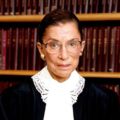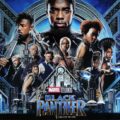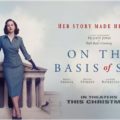
Open Road Films 1 hour and 58 minutes PG-13
How did director Reginald Hedlin talk Chadwick Boseman into doing another biopic? After playing James Brown, Jackie Robinson, and Floyd Little, Boseman balked, until he read Hedlin’s script. It was created by the father and son team of writer Jacob and prominent Connecticut Civil Rights Lawyer, Michael Koskoff who researched the subject thoroughly. It also didn’t hurt that Thurgood Marshall’s son wrote Boseman a letter urging him to take it on.
But this film isn’t just a biopic. And it’s not preachy. It just presents the facts through a courtroom case based on race. The evidence unfolds throughout the film a little at a time while the characterizations of those involved are being revealed. It’s courtroom drama and you become part of the jury.
It’s also an origin story showing how young Thurgood Marshall used his legal skills, working with the NAACP to create a career defending African Americans against racism. This trial, in 1941, takes place well before Marshall won 29 out of the 32 cases he brought before the Supreme Court, and before he became the first African American Supreme Court Justice. And it is just as relevant, if not more so today.
Hedlin didn’t pick Boseman because he looked like Marshall. He doesn’t. But he thought he had the swagger he wanted in the portrayal of Marshall. Sometimes we thought Boseman played it a little too slick and flip. But Hedlin sees the lawyer as a kind of Sheriff serving up justice by going from town to town. He was an underrated American superhero out to prove that all men are created equal under law. (Side note: Hedlin wrote Marvel’s Black Panther comic book from 2005-2008. Boseman played the Black Panther in Captain America: Civil War and will appear in more sequels)



This film tackles a controversial trial of a Black Chauffeur, Joseph Spell (Sterling K. Brown) accused of rape and attempted murder of the wealthy socialite he drove, Eleanor Strubing, played by Kate Hudson. The shot from Spell’s point of view in his jail cell looking up at Marshall adds to the lawyer’s imposing figure. Knowing he faces a death sentence, Brown plays it scared beyond belief and you feel for his character.
Because the racist judge (James Cromwell) won’t let a Black man talk in his court, Marshall is assigned the very nervous and inexperienced Jewish accident insurance lawyer, Sam Friedman, (Josh Gad) to speak for him. Friedman’s wife is wary because of their religion, but the scene where she stands up to the people staring them down in their synagogue is effective, showing their resolve to stand up to the criticism of working on a case with a Black lawyer.
Court drama can be boring and it’s almost painful watching Marshall and Friedman tip toe around each other in the courtroom trying to placate the Judge. They’re also trying not rile the prosecuting attorney, played with chilling Aryan attitude by Dan Stevens. But there are some very funny scenes seeing the two trying to figure out how to work together in court, starting with picking the jury. Marshall had the experience and smarts to pick out a juror who seems to have a thing for Friedman which could work in their favor.
Hedlin does a good job having Boseman show his frustration at having to remain silent in court, visibly restraining himself from jumping at the throat of the bigoted judge. Gad is convincing as the nervous lawyer, out of his league, looking every minute like he’s about to faint. You get sweaty palms watching him. They are both brutally attacked outside the courtroom which only strengthens their bond and their resolve.
The case turns out to be more like solving a mystery with Hedlin showing step by step the information and evidence Marshall and Friedman uncover that leads them to a startling conclusion. Hedlin puts you in the period and lets you see what it was like for African-Americans and Jews in this country at that time. Have attitudes changed?
The last scene in the movie shows Marshall’s arriving at a train station to take on his next case for the NAACP. He’s onboard to defend a 14-year-old boy for reportedly killing a police officer in Mississippi. Director Hedlin cast the parents of Trayvon Martin, the Florida boy who was shot to death in 2012, to play the parents of the boy Marshall is about to defend. Both Boseman and Gad agree this film shows the fight continues. They’re hoping young people will see this film and be inspired to follow Thurgood Marshall’s example and become lawyers seeking justice for all.






